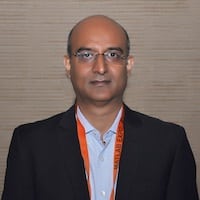AI, or artificial intelligence, is making a massive stride in way scientists, engineers, and programmers develop new products and improve the services. Industries and companies are adopting AI for better results and developing efficient products. To understand this scenario better Ankita KS from EFY Group spoke to Michelle Hirsch, head of MATLAB product management, and Sunil Motwani, industry director from MathWorks. The recent research from Gartner says that almost 50% of the companies are planning for adoption of AI but only 4% among them are successful in implementing so.

Q. How big are the demand and the business opportunity for AI in India?
A. We can categorise this into two areas. One is that in India there is a lot of talk and interest in AI as a research topic. Academia especially shows immense interest in understanding AI. The other point is the implementation of AI in specific application areas. For different industry segments, there are different applications of AI and some of those are gaining traction now like robotics, IoT, industrial automation etc. Almost every industry is starting to use AI including aerospace, automotive, communication, semiconductors, industrial automation and finance industries.

Q. Could you explain a few use cases?
A. Today we have intelligent systems that have a lot of data coming from sensors and with the help of perception algorithm you can make the autonomous system perceive the scenario the way a human would perceive. A good example will be predictive maintenance that is being used in almost every industry today like automobiles, aircraft, industrial assets and even in huge installations of electrical systems. Earlier, the maintenance strategy for all these kinds of systems was generally built around the typical failure rates but today the world is moving towards being able to predict the failure based on the past or synthesised data. So predictive maintenance is another big example of actual deployment of AI in industries.
Q. How according to you are the engineers and manufacturers adopting to AI today?
A. Machine learning and deep learning are the new families of techniques that can help solve the existing problems in a better way with AI. The scenario today is such that the technology leaders and the manufacturers see a lot of opportunity in AI, but they are not quite sure what it is. The recent research from Gartner says that almost 50% of the companies are planning for adoption of AI but only 4% among them are successful in implementing so.
Q. What do you feel is the major problem here?
A. One of the biggest challenges is building a team to work on AI. Companies need domain experts who understand their applications and people who understand AI technologies. The labor market is very tight right now for AI experts. MATLAB and Simulink make it easy for the domain experts to learn and apply AI. This gives companies the ability to leverage AI with their current employees.
Q. Are there any unique AI capabilities and features enabled by MATLAB and Simulink to these problems?
A. Our focus is to bring latest capabilities into our platforms to make it easy and accessible for engineers and scientists to adopt. We have developed apps to allow engineers to use machine learning without writing any code. The apps make machine learning easy for engineers even if they don’t have prior experience with it. Another unique capability is the ability to automatically translate MATLAB programs to real-time C code. This lets engineers deploy machine learning and deep learning models to run on embedded processors such as in a car or other production system
Q. How are these different from the traditional methods?
A. For example, one of the biggest challenges in developing automated driving applications is labelling video data for training machine learning and deep learning models. The typical workflow is to manually label every object in every frame of the video, for instance indicating the location of street signs, cars, and pedestrians. This is extremely time-consuming. We provide an app that automates this process so users just need to manually label objects in a few frames instead of the entire video.
Q. How can AI tools help engineers design critical systems like IoT?
A. IoT gives us access to an unprecedented amount of data showing how the systems we build or use are performing throughout their lifecycle. Where traditional data analysis would use this data to tell us what happens, for instance explaining why a part failed, AI gives us the ability to predict what will happen. This gives us a much greater ability to optimize the performance of our system, for instance fixing a part just before it fails.Practical IoT systems use a combination of software running in the cloud and software running on so-called “edge” devices – the actual system in use. MATLAB is unique in allowing engineers to easily deploy algorithms to both cloud and edge devices, giving much greater flexibility in how the overall IoT system is designed.
Q. How do you motivate your team at MathWorks?
A. What we have found helpful is making sure the engineers understand what happens with the software. There are not building a function, app or some underlying technology, they are building tools that transform the world. So, whatever we do we celebrate our success and we also maintain a blog where we describe the scientific discoveries or engineering breakthroughs that have been achieved using the tools developed by us. I feel that high-quality results are completely motivating for engineers.
Q. Your advice for future engineers working towards cutting-edge technologies?
A. The technology by itself does not change the world. Making the technology accessible is how you make an impact. Our advice to future engineers is to continue to focus on making the latest technology easy and accessible to engineers and scientists. Put in the hard work to figure out how to make complex technology simple for domain experts to use without having to become experts in the new technology.






